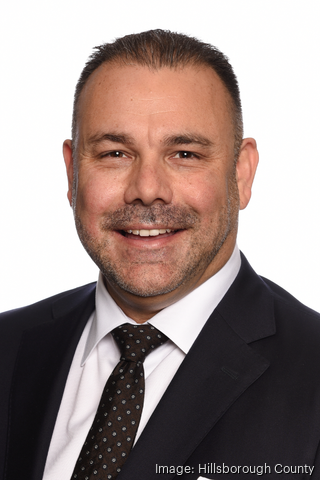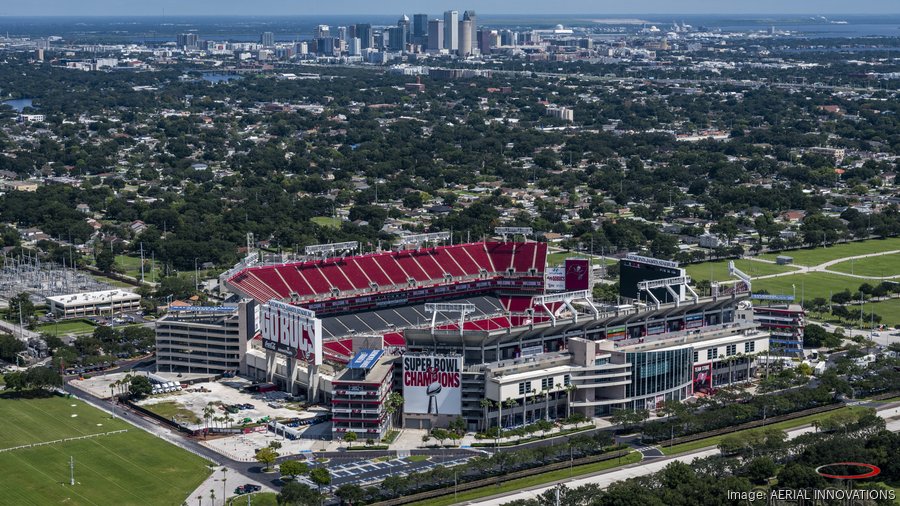Listen to this article 2 min
The Hillsborough County Board of County Commissioners voted to forge ahead on a tax that funds roads, public safety and other infrastructure.
Commissioners on Wednesday advanced a referendum asking voters to approve a half-cent sales tax in November. Ken Hagan and Pat Kemp cast the sole dissenting votes.
Although the tax already exists, key components of it would change. Instead of 25% of proceeds going to the Hillsborough County School District for capital projects, only 5% will. A new stadium is also unlikely to be built with the revenue.
The tax, officially called the Community Investment Tax and set to expire in 2026, was instrumental in keeping the Tampa Bay Buccaneers in town almost 30 years ago by helping fund the construction of Raymond James Stadium.
But on Wednesday, Commissioner Joshua Wostal motioned to prohibit any CIT funding being spent on new professional sports stadiums — an amendment that would have required another public hearing. He then withdrew the motion when county attorney Christine Beck said the ballot language wouldn't allow private facilities to benefit anyway.
"Ergo, if you never in the future end up owning a professional sports facility, that kind of gets you to the same place," Beck said.
Hillsborough County is still responsible for the sports facilities it already owns — Raymond James Stadium and Amalie Arena. Hagan said it would be financially irresponsible to exclude them from receiving CIT revenue. Maintaining Raymond James Stadium over the next 20 years will cost roughly $500 million, he said.
"You may not like it, I may not like it, but that's the draw," Hagan said.
If voters approve the new version of the CIT in November, it can still fund the maintenance of the current stadiums. The Bucs' lease agreement with the county ends after the 2027-28 NFL season. However, they have the option to extend it for another 20 years while retaining the right to leave after five years, County Administrator Bonnie Wise said.
The Bucs didn't immediately provide a comment.
Funding for schools slashed
Commissioners agree that South Hillsborough County has plenty of capital needs, including schools.
But efforts to raise the allocation to the school district from 5% have failed repeatedly, with opposition especially pronounced from Commissioner Michael Owen, who represents the growing area. On Wednesday, he lamented multifamily development.
"What the prior board called urban sprawl, I would call apartment sprawl," Owen said. "It's interesting to find that the same people and the same commissioners who were so out to get the suburban type of lifestyle nixed in east and south county would approve these big boxes with 10,000 windows. To me, that has been the big problem."

Owen tried to limit the 5% public school allocation to only fund new builds rather than also help pay for school buses and renovations. He withdrew the motion, with Hagan saying the school district understands what type of projects would get approval from commissioners.
Hillsborough County, the school board and the cities of Tampa, Plant City and Temple Terrace must approve an interlocal agreement with a project list by Aug. 1.
The tax is expected to bring in $206 million annually by fiscal 2028. Wostal said he won't vote for the tax this fall but supported advancing it on Wednesday.
"My job was not to come to this commission and act in my own interests," Wostal said. "I recognize that, in society, I'm probably only in the 5% or so that believes that taxation at its core is theft and maybe shouldn't exist. Most people do believe in taxing themselves a little bit for an improved infrastructure."
The new CIT is scheduled to last for 15 years until Dec. 1, 2041. Wostal was among those pushing for a shorter duration of the CIT, saying on social media that it was the "sneaky Dixiecrats" who "robbed" people from choosing to tax themselves by crafting the original CIT to last for 30 years.
